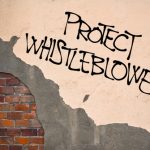NSW Police Refuse to Comply with Freedom of Information Request

A representative of the NSW Police Force appeared before the Administrative Appeals Tribunal last week, as part of an ongoing battle over a freedom of information request lodged 18 months ago.
In October 2016, Greens MP David Shoebridge filed a freedom of information request with the state’s police force, requesting briefing documents prepared by police for the NSW government during the 2016 debate over lever-action shotguns.
Earlier that year, state police minister Troy Grant began lobbying his colleagues to reclassify the Adler shotgun in NSW, setting the groundwork to remove a temporary import ban placed upon it by Prime Minister Tony Abbott.
“Throughout 2015 and 2016, the NSW Police Minister was aggressively making a political case to reclassify multi-shot lever-action shotgun to the least restricted category available. We want to know what advice the Police Minister and Government had been given about the safety aspects of the Adler and other lever action shotguns.” Mr Shoebridge told Sydney Criminal Lawyers®.
It is understood Mr Shoebridge lodged the request to ascertain the advice cabinet had been given before making the decision. “We could see no valid argument why the advice that was given shouldn’t be disclosed” he remarked.
Freedom of Information requests
Under the Government Information (Public Access) Act 2009, members of the public are able to access information held by the NSW government and other public bodies unless there is an “overriding public interest against disclosure”, or another piece of state or Commonwealth legislation restricts such disclosure.
The aim is to promote transparency and participation in government, and make the state accountable for its actions.
Section 3 of the Act explains that:
In order to maintain and advance a system of responsible and representative democratic Government that is open, accountable, fair and effective, the object of this Act is to open government information to the public by:
(a) authorising and encouraging the proactive public release of government information by agencies, and
(b) giving members of the public an enforceable right to access government information, and
(c) providing that access to government information is restricted only when there is an overrriding public interest against disclosure.
Applicants can submit a freedom of information request to any NSW government agency, including government departments, local councils, state-owned businesses, universities, ministers and their staff.
The organisation Right To Know provides a handy guide to making informal freedom of information requests, while the Privacy and Information Commission NSW provides a list of resources for making formal requests.
Importance of Freedom of Information
These requests play an important role in a representative democracy, giving the public a means of being informed about public decisions with a view to subjecting them to fair and proper scrutiny.
Freedom of information legislation has been recently used to ascertain rapid growth of land clearing rates across the state and the number of fatal shootings by police of those with mental illnesses.
As Right To Know explains:
“You pay taxes, and then government does things with the money. All sorts of things that affect your life, from healthcare through to national defence. Some it does badly, some it does well. The more we find out about how government works, the better able we are to make suggestions to improve the things that are done badly, and to celebrate the things that are done well.”
Government accused of delaying tactics
Despite the Act’s acknowledgement of the need for a ‘Government that is open, accountable, fair and effective’, Mr Shoebridge says the state regularly delays the release of important documents, and that waits of up to 12 or 18 months are not uncommon.
Although the law requires a response within 30 days, there are a range of stalling tactics which can be utilised to significantly delay disclosure.
Where there is a protracted delay or refusal, applicants are able to challenge that decision through the Administrative Appeals Tribunal – although that process can be time-consuming in itself.
“Quite often having information in a timely manner is what makes the information politically useful, and actually allows you to hold the government to account.” Mr Shoebridge states.
“When you’ve regularly got 12 to 18 month delays before you even get a decision, that just works in favour of Government secrecy, because even if you do get the information, the public debate has moved on.”
It is certainly not just state departments that are reluctant to disclose information to the public.
In recent years, the federal government has passed a suite of laws making it a criminal offence to disclose or publish information relating to Commonwealth government agencies, including human rights abuses in detention centres, anti terrorism raids (including raids where innocent people are subjected to heinous crimes at the hands of law enforcement officers), operations concerning offshore boats under Operation Sovereign Borders and crime, corruption and other forms of misconduct within government.






